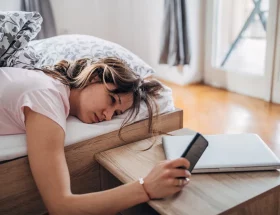
Managing Your Mental Health During COVID-19
If you’re feeling exhausted, worried, overwhelmed, or mentally checked out because of the wholesale changes brought forth by these unprecedented times, you’re not alone. The lingering effects of the COVID-19 pandemic have isolated billions of people all over the world, increasing stress and anxiety.
The statistics bear this out. Four in ten adults in the US have reported symptoms of anxiety and depression in a survey conducted in January 2021, representing a fourfold increase from January to June 2019.
Some 53% of adults, on the other hand, worry that Coronavirus-related stress is affecting their mental health.
That’s not to mention changes in sleeping patterns, difficulty in concentrating or falling asleep, exacerbation of chronic physical and mental health problems, as well as unhealthy coping mechanisms like alcohol, tobacco, or drug use.
There’s no end in sight as we march onwards through the year. The continuing public health measures related to the pandemic have exposed billions of individuals to situations that may harm mental health, such as losing a loved one or a livelihood, financial hardship, or just being lonely and feeling isolated. It’s overwhelming enough to drive you to your wit’s end. If you or anyone you know has been suffering from covid related symptoms make sure to check out Mybiosource to learn more about different ways and methods on how to get tested and know if you are positive accurately.
Uncertainty and fear are to be expected amid a pandemic, but it’s important to remember that we aren’t helpless. Here are some ways you can take action to help yourself, your loved ones, and the rest of your community manage your mental health in the time of Coronavirus:
Take a News Time-out

It’s one thing to be informed, and it’s another to willfully upset yourself by constantly consuming news stories about the pandemic on social media and the internet. Be mindful of the content you consume, and fact-check it for veritable sources.
Consider limiting yourself to listening to a minimum of news content several times a day and get off social media, TV, and your laptop for a while. You don’t have to be plugged into the 24/7 news cycle.
Instead, devote the time you otherwise would have spent on reading the news to other more pleasurable pursuits, such as your hobbies. Learn a new skill. Unwind. Just remember that things will get better soon.
Look After Your Body

There are plenty of ways you can take care of your physical health, and they’re as simple as making a few lifestyle changes as follows:
Get the right amount of sleep
Abide by a bedtime routine and sleep and wake up at the same time every day. Make the best effort you can to stick to it.
Exercise
It’s proven that exercise and physical activity reduce anxiety and stress, and there’s no shortage of free exercise resources on the internet. Get on YouTube, look for a routine you can perform, or go for a walk in the park. Fitness apps are also a great way to stay in shape while staying home.
Eat a well-balanced diet and lay off tobacco, alcohol, and drugs
Lay off the junk food, caffeine, and sugar. Avoid stimulants like caffeine and intoxicants like alcohol, as they may exacerbate symptoms of stress and anxiety. Smoking tobacco may interfere with your body’s coping mechanisms and already puts you at a higher risk of contracting lung-related illnesses. Medicate only under your doctor’s advice.
Plan for some “me” time
It’s easy to forget how important it is to take time off for ourselves in the flurry of our busy workdays. Just a 15-minute period of meditation can help reduce your anxiety. Explore yoga, tai chi, or breathing exercises, and flex your cognitive skills by reading a book or learning a new skill. Whatever it is that takes your mind off your most pressing concerns—do it regularly.
Deal with uncertainty by staying in the moment

These are uncertain times. There’s only so much you can control. It’s important to be aware of that, especially with the limitations that public health measures might impose. Meditating and practicing mindfulness exercises are great ways to deal with anxiety.
Stay connected with your friends and loved ones
No man is an island. If you need to stay home, don’t isolate yourself from your friends and loved ones. It only takes a minute to send a message, email, or phone call. If you and your colleagues are working from home, make it a habit to check in now and then and see how they’re dealing with the new paradigm.
If you feel like someone you know might be particularly isolated, consider reaching out and seeing how you can help them. Offer to pick up groceries for senior citizens who might need help. Find ways to reach out to friends who might be ill or need to stay at home and stay in contact with them. Doing something for others is a meaningful way to spend your time in an era of lockdowns and quarantines.
Remember to be kind to yourself and others
It’s easy to feel hopeless in a time where life seems to be dictated to us. Granted, there’s not a lot we can control about things now. But we can control the way we treat ourselves and others during these challenging times. The lines between work life and home life will often be blurred, and it will take some time for us to adapt. It’s impossible to be at your best self 100% of the time.
Nobody said living in a time of pandemic was going to be easy. But we can make it easier for everyone by reaching out to help others, asking for help ourselves if we need it, and being proactive about managing our own mental health.









